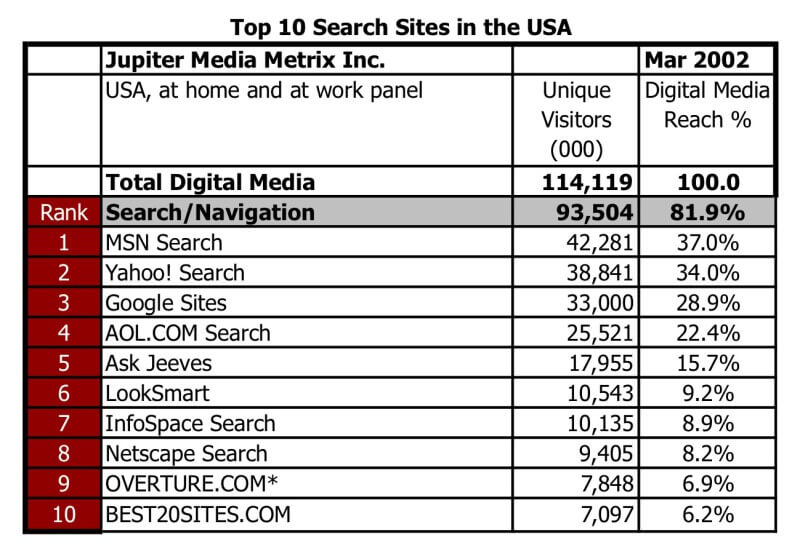Yes, Steve Scalise, There Was A Google In 2002
US House of Representatives majority whip says Google not being "available" in 2002 prevented vetting his speaking to group of white supremacists. But Google and other popular search engines did exist.
Controversy has erupted this week when news emerged that the Steve Scalise, majority whip of US House of Representatives — the chamber’s third highest post — spoke to a white supremacist group in 2002. Part of Scalise’s excuse? Google wasn’t available to research groups in 2002.
From what Scalise told the New Orleans Times Picayune yesterday:
There is a lot more vetting that goes into setting my appointments. I have a scheduler. I didn’t have a scheduler back then. I was without the advantages of a tool like Google. It’s nice to have those. Those tools weren’t available back then.
That’s simply wrong. I can’t speak as an expert on politics. But as an expert on search engines, who has covered the space for nearly 20 years — from before Google itself even existed — yes, Google was available as a tool in 2002.
Google: Founded 1998
In 2002, Google was four years old. That’s pretty easy for anyone today to figure out. All you have to do is use that widely available search tool called Google and ask “when did Google start,” and you get its official founding date at the top:
Actually, Google itself likes to move its exact birthday around within the month of September 1998 — but the year has always stayed the same. And by 2002, Google was well established as a leading search engine. Nor was it alone.
Google & Others Popular In 2002
comScore regularly tracks the most popular search engines. Back in 2002, comScore was known as Jupiter Media Metrix. Here’s the ranking of top search sites as of March 2002, from data given to me directly around that time:
As can be seen, Google was a popular search engine in 2002 — ranked third. Yahoo, even older than Google, was second. MSN Search, built into Internet Explorer, was the most popular.
FYI, the stats represent number of visitors, not number of searches. Today, we count searches to measure popularity, a generally more accurate figure. But even these older figures are enough to show Google was available for anyone who wanted to research groups, as were other search engines.
Nielsen has also measured search engine popularity, and here are figures given directly to me for March 2002:
Again, Google is shown as a popular search engine in 2002 — ranked third, as with comScore, in terms of audience. In terms of time per person, Google has by far the most — reflecting that most search visitors to Google were there a lot.
Indeed, Google was so popular in 2002 that it faced criticism from some groups that it was already too big and too powerful — and that’s also the year it was censored by China.
Searching Was Popular In 2002
A generous view of Scalise’s statement might be that perhaps search engines, while available, weren’t widely used in 2002. However, even that reading doesn’t hold up.
Consider these stats from Pew Internet, which has tracked popular internet activities for over a decade:
The chart shows that int 2002, 85% of adults with internet access used search engines. That’s virtually everyone. Searching wasn’t an obscure activity done by a select few in the know. It was commonplace.
Of course, not everyone was online in 2002 — but being connected was also fairly commonplace, including for politicians. The same report also found that for all Americans — even those not reporting they had online access — 52% had used a search engine.
So yes — Google was available in 2002, as were several other popular search engines, and searching was a regular activity undertaken by plenty of Americans.
Opinions expressed in this article are those of the guest author and not necessarily Search Engine Land. Staff authors are listed here.
Related stories




